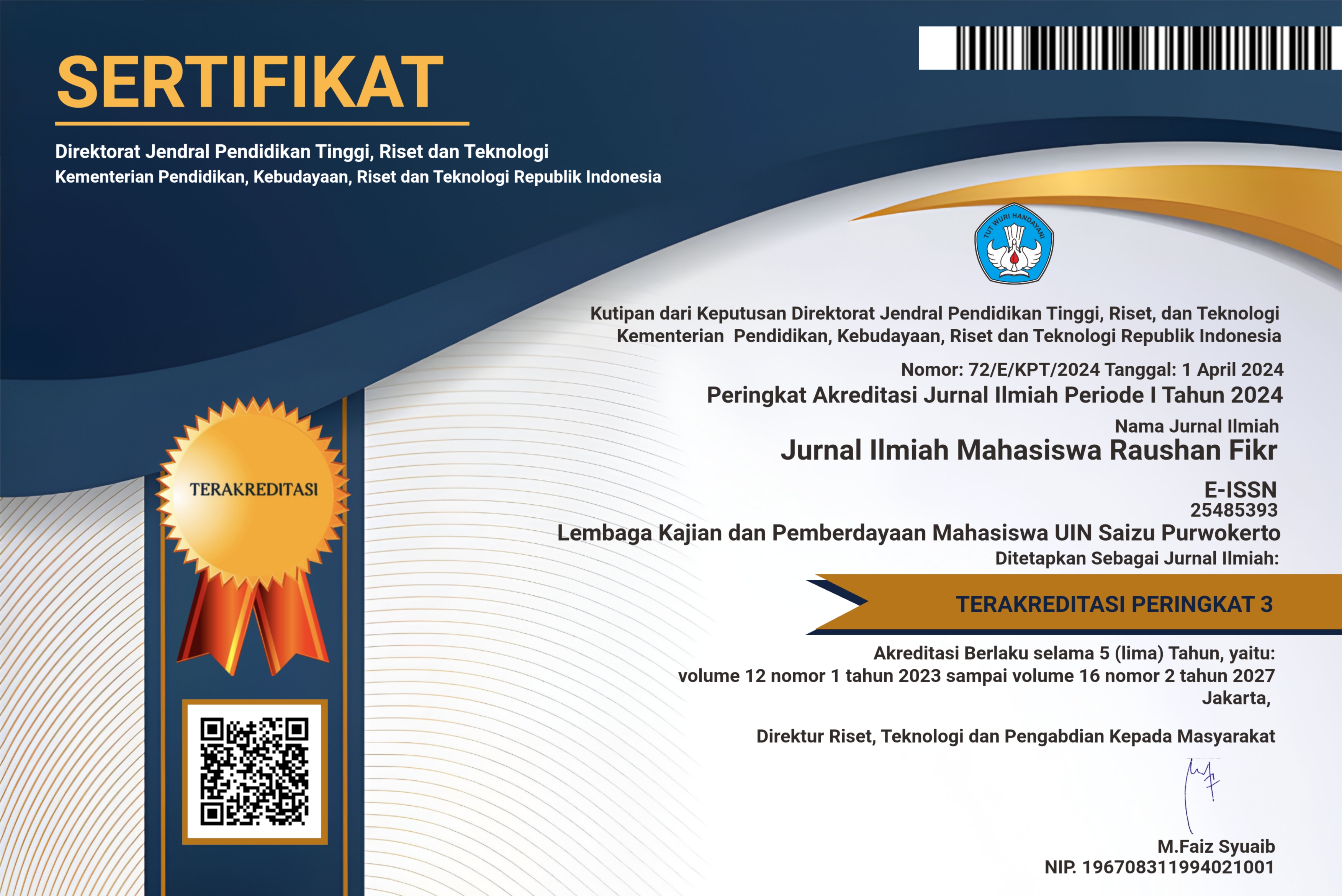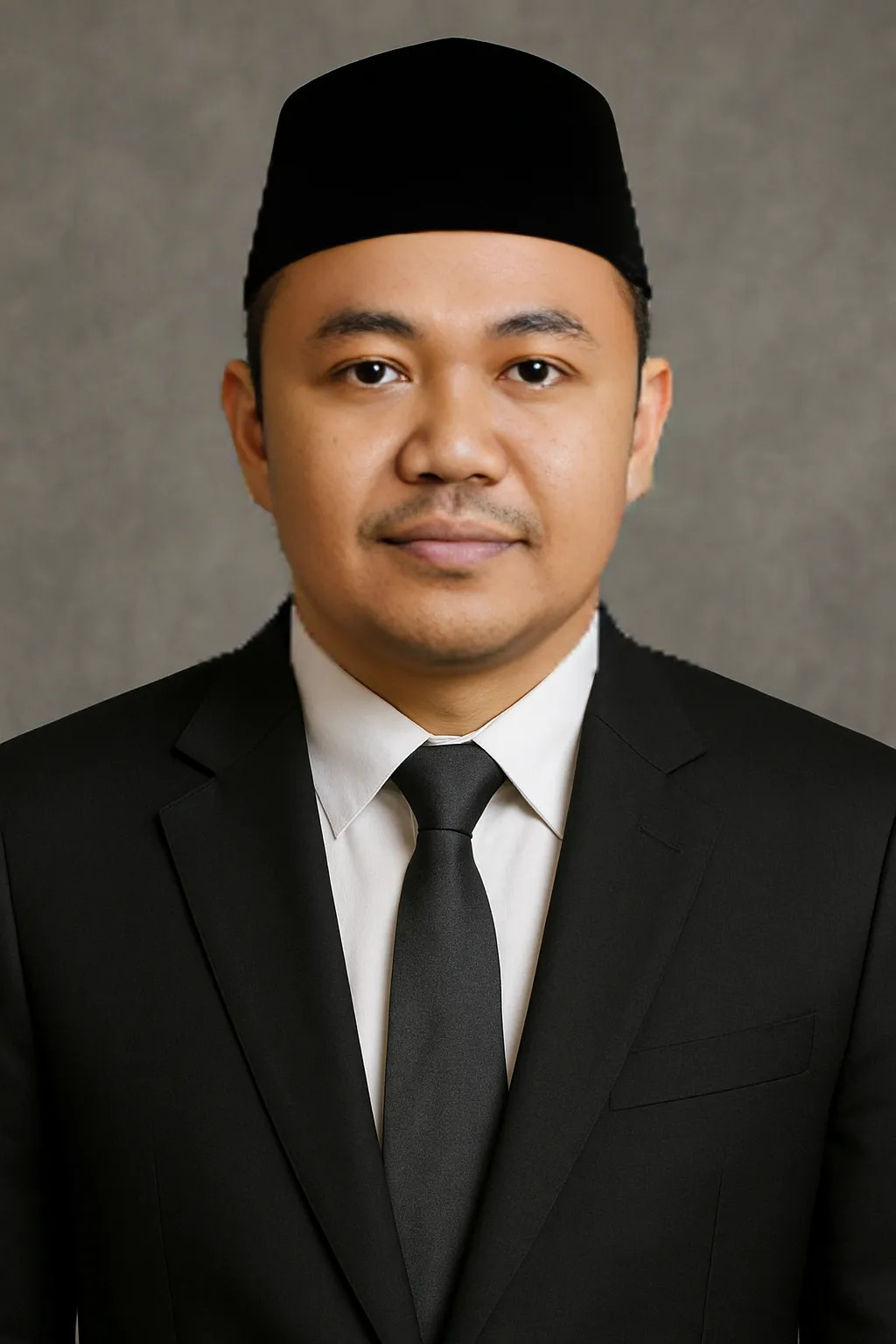PELAKSANAAN SHALAT DHUHA DALAM MENINGKATKAN KECERDASAN SPIRITUAL SISWA KELAS 3 MADRASAH IBTIDAIYAH MA'ARIF NU AJIBARANG WETAN
DOI:
https://doi.org/10.24090/jimrf.v9i2.4143Keywords:
Pelaksanaan, Shalat Dhuha, Kecerdasan SpiritualAbstract
Spiritual intelligence in the world of education has reached a very influential level, because through education students are guided directly and directed towards the goal of developing spiritual intelligence from school efforts such as teaching and learning, school culture, and through various activities outside of learning. The purpose of this research is to find out how the implementation of Dhuha prayer in improving the spiritual intelligence of students in Madrasah Ibtidaiyah especially in class 3. The study was conducted using a descriptive qualitative approach, the setting of this research is in MI Ma'arif NU Ajibarang Wetan Banyumas district in 2020. The subject of this study is a grade 3 teacher. Research data were obtained through observation, interviews, and documentation. The results of research that researchers have obtained is the implementation of Duha prayer to achieve spiritual intelligence optimally. At MI Ma'arif NU Ajibarang Wetan made efforts from various methods, such as exemplary methods, habituation, advice, motivation and so on. In an effort through the implementation of this Dhuha prayer students have experienced a very good change.Downloads
References
Abdillah, Ubaid Ibnu. Keutamaan dan Keistimewaan; Shalat Tahajud, Shalat Hajat, Shalat Istikharah, Shalat Dhuha. Surabaya: Pustaka Media, t.t.
Abdullah, Mas Udik. Meledakkan IESQ dengan Langkah Takwa & Tawakal. Jakarta: Zikrul Hakim, 2005.
Abdullah, Syech bin Abdurrahman Bafadhol. Muqoddimah Al-Hadromiyah. Malang: Ar-Roudho, 2010.
Agustian, Ary Ginanjar. ESQ Emotional Spiritual Quotient. Jakarta: Arga, 2006.
A’yunin. The Power Of Dhuha: Kunci Memaksimalkan Shalat Dhuha dengan Doa-doa Mustajab. Jakarta: Kalil Gramedia Pustaka Utama, 2014.
Azzam, Abdul Aziz Muhammad, dan Abdul Wahhab Sayyed Hawwas. Fiqh Ibadah. Jakarta: Amzah, 2009.
Azzet, Akhmad Muhaimin. Mengembangkan Kecerdasan Spiritual Bagi Anak. Yogyakarta: Kata Hati, 2010.
Departemen Pendidikan dan Kebudayaan RI. Kamus Besar Bahasa Indonesia. Jakarta: Balai Pustaka, 1990.
Echols, John M, dan Hasan Shadily. Kamus Inggris-Indonesia. Jakarta: PT. Gramedia Pustaka Utama, 2005.
Guinlock, James. John Dewey’s Philosophy of Values. New York: Humanities Press, 1972.
Hawari, Dadang. Al-Qur’an: Ilmu Kedokteran Jiwa dan Kesehatan Jiwa. Yogyakarta: Dana Bhakti Prima Yasa, 2004.
Margono, S. Metodologi Penelitian Pendidikan. Jakarta: Rineka Cipta, 2010.
Moloeng, Lexy J. Metodologi Penelitian Kualitatif. Bandung: Remaja Rosdakarya, 2011.
Rasjid, Sulaiman. Fiqh Islam. Bandung: Sinar Baru Algensindo, 2011.
Rifa’i, Moh. Risalah Tuntunan Shalat Lengkap. Semarang: PT. Karya Toha Semarang, 2013.
Siswanto, Wahyudi. Membentuk Kecerdasan Spiritual Anak. Jakarta: Amzah, 2012.
Uno, Hamzah. Orientasi Baru dalam Psikologi Pembelajaran. Jakarta: Bumi Aksara, 2008.
Yusuf, Syamsu. Psikologi Perkembangan Anak dan Remaja. Bandung: PT. Remaja Rosdakarya, 2002.
Downloads
Published
How to Cite
Issue
Section
License
Authors who publish with this journal agree to the following terms:
- Authors retain copyright and grant the journal right of first publication with the work simultaneously licensed under a Creative Commons Attribution-NonCommercial-ShareAlike 4.0 International License that allows others to share the work with an acknowledgement of the work's authorship and initial publication in this journal.
- Authors are able to enter into separate, additional contractual arrangements for the non-exclusive distribution of the journal's published version of the work (e.g., post it to an institutional repository or publish it in a book), with an acknowledgement of its initial publication in this journal.
- Authors are permitted and encouraged to post their work online (e.g., in institutional repositories or on their website) prior to and during the submission process, as it can lead to productive exchanges, as well as earlier and greater citation of published work (See The Effect of Open Access).
















